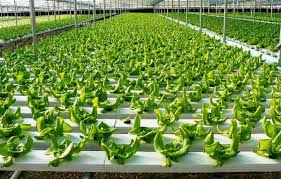Standard field farming practices have seen a lot of pessimistic press, from fears about soil erosion to huge water consumption to food-borne disease breakouts. The hydroponic farming industry resolves many of these concerns. Hydroponic systems are water-based, soil-less, farming procedures. Instead of using soil for plant nutrition, crops are fed with nutrient-rich water, negating a lot of the things that comes with soil-based methods.
- Field farming uses so much water as so much of it is lost. Water rolls away, evaporates, and puddles, making much of it unfeasible. That is a lot of misuse! Hydroponic systems use about ten times less water as it is delivered in a controlled way. Plus, some systems re-circulate water, lessening consumption extra!
- Plants developed in soil need to spread their roots to find water and all the nutrients they need to live on. This means they should be planted a certain distance aside from each other. In hydroponic systems, roots do not need to spread as water and nutrients are delivered correctly to them. Due to this, hydroponic systems can develop more plants in the same amount of space as soil-based systems.
- While hydroponic systems do not eliminate pest problems, it does reduce the prospective of this happening, resulting in less need for herbicides and pesticides. Hydroponic systems are extremely controlled so there is no risk of weeds taking over your garden. Due to this, there is no necessity for herbicides. Also, as hydroponic systems are frequently indoors, pests cannot infiltrate them, so pesticides are not necessary.
- Hydroponic systems nourish plants using nutrient solution blended with water, offering the farmer improved control over what nutrients their crops absorb. Plants developed in soil may need the assistance of fertilizers to stay alive. But in hydroponics, the plants are already receiving all the assistance they need and the right amount of it.
- Another advantage of hydroponic farming is that it is simple to do indoors. Cultivating indoors comes with its own advantages such as the ability to cultivate year-round, climate and temperature control, and fewer pests. Hydroponic systems are implemented indoors usually due to the environmental control it provides. With near ideal developing conditions, plants grow faster and stronger.
- As more plants can be grown in small spaces with hydroponic farming, hydroponic systems usually yield more per square foot. Also, plants are healthier and grow quick, generating more produce quickly. Indoor conditions also enable for year-round growing, irrespective of climatic condition or season, so plants’ that continue to produce after the first harvest can be harvested more times.
PH levels are occasionally overlooked by cultivators, but it is a crucially important aspect of cultivation which guarantees that your plants can access suitable quantities of the nutrients they need for healthy growth. In hydroponic cultivation, the pH of the solution can be adjusted simply and measured correctly to make sure that an optimal pH is maintained always.
Benedict T. Palen, Jr., has three decades of knowledge working in management, operations, and agricultural investments. Right now, Benedict T.Palen, Jr., serves as co-proprietor and manager for Great Plains Farms, LLC, administering all from the appraisal of farmland to offering proposal on operator training and irrigation development.
No comments:
Post a Comment